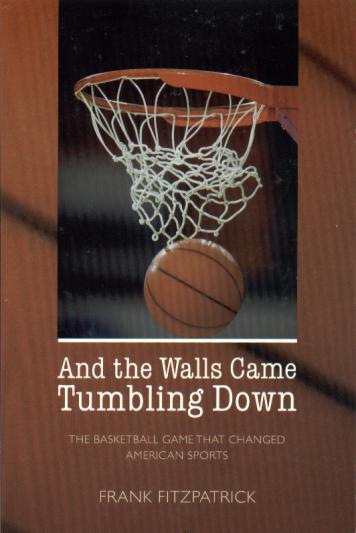By Frank Fitzpatrick
![]()

![]()
Ranking: ![]()
![]()
![]()
![]()
![]()
In 1966, the University of Kentucky squared off against Texas Westen College to decide the national champion of college basketball. The teams each had 1 loss and were ranked #1 & #3, respectively, in the final rankings. Despite this, Texas Western was given no chance to win by the mainstream media and numerous coaches and their victory was considered one of the all-time great upsets in NCAA tournament history. Why? Because Kentucky was coached by the venerable Adolph Rupp and their team was made up entirely of white players. Texas Western started 5 black players and they only played black players for the entire game (7 total).
The game shattered numerous myths. First, a team full of black players supposedly could not defeat a well-coached team of white players. Supposedly black players lacked the intelligence and relied only on physical play. They gave up easily when they were behind. Also, a black player could not play the point guard, because it required too much thinking. All of these myths were shattered, as Texas Western ran a slowed-down offense, depended heavily on defense, and beat Kentucky at the so-called "white man's game."
This book goes into great detail about these myths that were perpetuated and how the Atlantic Coast Conference, the Southeastern Conference, and the Southwestern Conference opposed integration. Mostly, it focuses on Rupp: his life, his beliefs, and his actions. He fought integration even while his own university president was pushing for it. He half-heartedly recruited black players -- sending assistants to recruit and never meeting the players.
The author tries to be fair in his portrayal of Rupp. He is a bit editorial, but he does try to present the arguments that support Rupp from his family and his players, but the fact is, and the author keeps pointing it out, Rupp's team was the last in the SEC to integrate. He had numerous talented players in his state that he never recruited (such as Wes Unseld & Butch Beard). Also, if Rupp favored integration, he was certainly in a position to do something about it. I tried to play devil's advocate with the author's logic, but ended up coming to the same conclusion, and it is to his credit that he tried to tell both sides of the story.
The book surprisingly is more about Kentucky than Texas Western, but that is because the book is more about social issues and matters of equality and justice than just being a basketball book. Kentucky and its supporters are the ones on the wrong side of the argument and thus, had to change. Texas Western did what is now commonplace: place the best players on the floor.
The author paints the background in such a way that you can see the inevitability that the game is of utmost historical importance, but unlike the movie Glory Road, he points out that no one at the time really saw it as such, and only as time went on did its importance become realized -- not just because a team starting 5 black players won a title (because the Boston Celtics did it the year before) but because they did it beating an all-white team whose coach was entrenched in old ways of thinking. It was a clash between the way things were and the way things would become.
Finally, the author covers the aftereffects of the game -- how it affected both schools, coaches, players, as well as others around the country.
Fine journalism.
Introspection: N/A
Insight: 5
History: 1965-66 with references from the 1920s-1990s.
Readability: 5
And the Walls Came Tumbling Down: The
Basketball Game that Changed American Sports. Frank Fitzpatrick.
Bison Books. 1999.